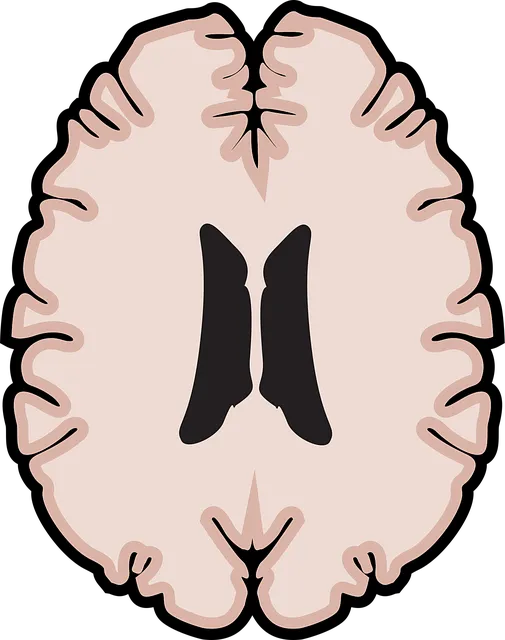Mental health policies are vital for creating supportive communities, especially in managing conditions like depression. Organizations such as Littleton Kaiser Permanente's (LKP) behavioral health departments play a key role by providing evidence-based strategies and holistic care, including tailored interventions and stress management workshops. Policy analysis and advocacy can lead to improved access to therapy, prevention programs, and better mood management, benefiting underserved communities. LKP BHS' multifaceted approach, focusing on both immediate support and long-term policy change, significantly enhances outcomes for patients facing complex psychological challenges, setting a model for comprehensive care within primary settings. Effective advocacy emphasizing resilience, destigmatization, and accessible therapy is crucial to shaping policies that prioritize mental wellness as an integral part of public health.
Mental health policy analysis is a critical component of fostering community well-being. This article delves into the significant role played by organizations like Littleton Kaiser Permanente Behavioral Health Services as pioneers in mental healthcare. We explore their impact and provide a case study on their services. Furthermore, we analyze existing policies, identify gaps, and discuss barriers to access. By examining these aspects, we outline effective advocacy strategies to shape mental health policies and initiatives, ultimately aiming to revolutionize community support for mental wellness.
- Understanding Mental Health Policy and Its Impact on Community Well-being
- The Role of Littleton Kaiser Permanente Behavioral Health Services: A Case Study
- Analyzing Policy Gaps and Barriers to Accessing Quality Mental Healthcare
- Advocacy Strategies for Shaping Effective Mental Health Policies and Initiatives
Understanding Mental Health Policy and Its Impact on Community Well-being

Mental health policies play a pivotal role in shaping the well-being of communities, especially when it comes to managing conditions like depression and promoting mood stability. These policies, often developed by governments and healthcare organizations, influence access to essential services such as those provided by Littleton Kaiser Permanente behavioral health departments. By implementing evidence-based strategies, communities can reduce the burden of mental illness and enhance overall public health.
Policy analysis in this domain involves scrutinizing existing legislation, programs, and their outcomes. It helps identify gaps and areas for improvement, ensuring that resources are allocated effectively to support at-risk populations. Effective advocacy for mental health policy changes can lead to better depression prevention strategies, improved access to therapy, and enhanced mood management programs within community settings.
The Role of Littleton Kaiser Permanente Behavioral Health Services: A Case Study

Litttleton Kaiser Permanente Behavioral Health Services (LKP BHS) stands as a beacon of hope and holistic care within the healthcare landscape. This case study highlights their pivotal role in addressing mental health challenges, particularly through tailored interventions that cater to diverse patient needs. LKP BHS integrates comprehensive risk assessment for mental health professionals, ensuring a proactive approach to identify and mitigate potential risks.
The organization also champions emotional well-being promotion techniques that extend beyond traditional therapy. They organize stress management workshops designed to empower individuals with coping strategies, fostering a culture of resilience within the community. This multifaceted approach not only addresses immediate concerns but also focuses on sustainable mental health advocacy, ultimately contributing to improved outcomes for patients navigating complex psychological landscapes.
Analyzing Policy Gaps and Barriers to Accessing Quality Mental Healthcare

In analyzing the landscape of mental healthcare, identifying policy gaps and barriers to accessing quality services is paramount. The current system often fails to cater to the diverse needs of individuals seeking support for their behavioral health, such as those relying on Littleton Kaiser Permanente’s behavioral health services. One significant challenge lies in the limited availability of specialized programs, particularly for trauma support services, which are crucial for addressing the rising rates of traumatic stress disorders. This gap hinders patients from receiving comprehensive care tailored to their unique experiences.
Moreover, socio-economic factors play a pivotal role in access, with financial barriers and insurance limitations preventing many from seeking necessary treatment. For instance, individuals from underserved communities might struggle to find affordable trauma support services or programs focused on inner strength development and compassion cultivation practices. Such obstacles underscore the need for advocacy, pushing for policies that promote equity in mental healthcare, ensuring everyone has the chance to nurture their inner strength and access compassionate support.
Advocacy Strategies for Shaping Effective Mental Health Policies and Initiatives

Effective mental health advocacy is instrumental in shaping policies that address the complex needs of individuals and communities. Strategies for policy influence should encompass a multifaceted approach, leveraging community engagement, expert testimony, and robust data to drive change. One such strategy involves highlighting successful initiatives like Littleton Kaiser Permanente’s behavioral health services as models for comprehensive care. By showcasing these programs, advocates can illustrate the tangible benefits of integrated mental health support within primary care settings, fostering collaboration between medical professionals and behavioral specialists.
Moreover, advocacy efforts should emphasize resilience-building strategies and promote mind over matter principles to prevent depression and other mental health disorders. This includes advocating for policies that fund accessible therapy options, early intervention programs, and community outreach initiatives aimed at destigmatizing mental illness. By combining these tactics with evidence-based practices, advocates can contribute to a societal shift, ensuring policies prioritize mental wellness as an essential component of overall public health.
Mental health policy analysis and advocacy are pivotal in fostering community well-being. The case study of Littleton Kaiser Permanente Behavioral Health Services highlights successful initiatives that significantly impact access to quality mental healthcare. However, persistent policy gaps and barriers necessitate urgent attention. By employing effective advocacy strategies, we can shape policies that prioritize mental health, ensuring equitable access to services for all. Continued analysis and collaborative efforts are essential to revolutionize mental healthcare, making it a cornerstone of community resilience and wellness.






